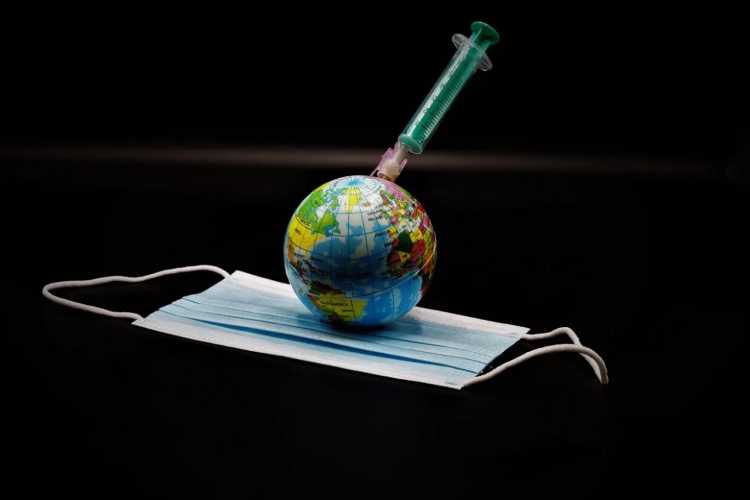
The year 2020 has been a destructive one for the global economy. The Covid-19 pandemic has destroyed the health and livelihood of hundreds of millions across the planet. To date, the virus has infected more than 80 million people worldwide and claimed nearly 1.8 million lives, with the United States accounting for almost a fourth of all infections and close to a fifth of the fatalities. In economic terms, the disruptions caused by the healthcare crisis will end up shaving 4.2% off the world GDP. According to the International Monetary Fund, 170 out of 190 economies will register negative growth this year.
Many of the large economies that form the engine of the global economy contracted sharply, especially in the second quarter. The world’s largest economy, the United States, saw a second-quarter decline of 31.4%. Other major economies that shrank in the quarter include Germany (11.7%), Britain (19.8%), Japan (28.1%), Italy (12.8%), Spain (22.1%) and Canada (11.3%). India’s GDP dropped 23.9% in the same period.
Hopes of a quick turnaround in the new year have been dashed by the emergence of a third Covid wave in the US — the country most affected by the virus — and a new virulent strain in Britain, which has thrown global trade and travel recovery into disarray.
READ I Cause and effect: How disruptive technologies are changing global trade
Britain and Europe averted a catastrophe by arriving at a last-minute Brexit deal. That good news was balanced off by the uncertainty in the US over the new stimulus bill which Congress has passed but President Trump may not sign due to a rare fratricidal war between President Donald Trump and Congressional Republicans.
As we enter 2021, however, there are two major silver linings on the horizon. The first is the arrival of Covid vaccines. The second is the imminent departure of Donald Trump from the White House and Joe Biden replacing him as President.
Given the disastrous world-wide impact of the pandemic, the most notable encouraging development is the production and distribution of the Covid vaccines. According to the New York Times, so far at least three vaccines have entered the market with approval for full use and another five have approval for limited use. In addition, at least 18 more are in the final stages of testing. The first vaccine to get approval in the US was developed by the American drug giant Pfizer and its German partner BioNTech. It was followed by a vaccine developed by US firm Moderna.
READ I Explainer: Should you be worried about UK’s super spreader Covid-19 variant
The vaccination drives currently underway in many developed countries, including the US, are expected to restore a semblance of normalcy to their citizens’ lives. After a substantial portion of their populations receive vaccines and the fear about the disease wanes, a revival of economic and social activities can be expected. This will occur because people will have the confidence to go out and eat at restaurants, watch movies in theaters, attend sporting events, go on holidays and resume all the other large and small consumer activities that move economies forward.
This rebound and return to normalcy in consumer spending is critical. In 2020, the virus caused the private consumer expenditure in advanced economies to decline by 7.1%, according to IMF projections. Similarly, the domestic demand also dropped in these countries. In the US, it dropped by 3.6%, while the decline was 7.4% in the Euro Area (Germany, France, Italy and Spain), 11% in the UK and 4.6% in Japan. Because of the faster than expected rollout of vaccines, the research group Oxford Economics has raised its global GDP forecast for 2021 from 4.9% to 5.2%.
The development of vaccines in less than a year after Covid-19 was initially diagnosed is a truly remarkable scientific accomplishment. Various governments, drug companies and researchers who worked round the clock to develop them deserve much credit.
READ I Covid-19: Fighting the pandemic and infodemic
The fact that many of the companies behind the vaccines are relatively new makes their accomplishments even more significant. For instance, BioNTech was founded 12 years ago and Moderna has been in existence for only 10 years.
While Joe Biden becoming the President of the United States on January 20 is not as important as the development and distribution of the coronavirus vaccines, it is still a significant development. This is the case because of the considerable damage that has been done by the current occupant of the Oval Office.
With the sole exception of the coronavirus, Donald Trump has been the single biggest disruptive force in the global economy in the last four years. He took the United States out of a number of global treaties and organisations, tore down several other pacts and implemented a disastrous trade policy.
READ I ESG reporting: Did the Big Four and the World Economic Forum crack it?
The pacts and organisations he dumped include the landmark Paris Agreement, the North American Free Trade Agreement (NAFTA) and the Trans-Pacific Partnership. In a move that can only be described as beyond reckless, in the middle of the global pandemic, he exited the US from the World Health Organisation, the UN agency that is in charge of leading the fight against epidemics and pandemics.
Free trade has been centerpiece of the United States economic policy beginning with President Teddy Roosevelt in the early 20th century. Trump abandoned that principle, which has benefited the country and its businesses for nearly a century, choosing to pursue a protectionist trade policy and trade wars.
The president levied a series of tariffs on a number of trading partners, notably China, Mexico, Canada and the European Union. He argued that the tariffs revive the US manufacturing industry and create jobs. But according to the Brookings Institution, “American firms and consumers paid the vast majority of the cost of Trump’s tariffs.”
Trump’s trade policy with India was transactional at best. While the strategic relations continued to grow somewhat under his administration, the same cannot be said about bilateral commercial and trade relations. The president openly criticised India’s trade practices and climate change positions many times.
READ I Decriminalisation of corporate offences may be counterproductive
On the domestic front in the US, much of the blame for the uncontrollable spread of Covid-19 lies with Trump, who ignored and even underplayed it until it became too late. The United States would have done much better but for the president’s questionable economic stewardship, combined with his inability to provide sound science-based leadership and serve as a role model during the crisis.
The soon-to-be ex-president’s seemingly infinite capacity to disrupt was once again on display last week, when he threw a wrench at a stimulus package that would have ensured money into the pockets of tens of millions of struggling Americans and provided a much-needed boost to the US economy.
The good news is that Trump’s turbulent term will end in a little over three weeks and Joe Biden will be coming into office as his successor. He will have to clean up the mess that Trump has left behind. Unfortunately, Biden will have to spend good chunk of his time — at least in the first year — doing that, on a broad range of issues, from healthcare and economy to climate change and foreign policy.
READ I GST regime in the education sector needs further tweaking
Fortunately, Americans have elected the right man for that job and doing it quickly and effectively because of his experience and expertise. Biden helped President Obama rebuild the economy in the aftermath of the Great Recession, the last major storm to hit the global economy prior to Covid-19. Biden has signaled that rebuilding the economy and tackling Coronavirus will be his top two priorities as President.
The former vice president, who served as the Chair of the Senate Foreign Relations Committee before becoming Obama’s number two, is also the right person to rebuild America’s relations with the rest of the world. A professed and accomplished multilateralist, he knows that America is not an island and that not only does it need to deal with the world, but that it also needs to provide leadership on global issues. Biden understands that if the United States doesn’t, there are other countries like China and Russia that will.
The president-elect has vowed to rejoin WHO, which happens to be the only multilateral body that has institutional capability to lead the fight against Coronavirus, and the Paris Agreement. “America is back,” said Biden while announcing his foreign policy team last month.
READ I Bankrolling global climate efforts in the time of Covid-19
Equally reassuring has been the manner in which he has put together his team that will form the core of the next administration. Biden’s incoming cabinet contains several heavyweights and experienced hands at the helm of various departments, including women and men such as Kamala Harris as Vice President, John Kerry as special presidential envoy on climate change, Janet Yellen as Treasury Secretary and Tom Vilsack as Secretary of Agriculture.
The current year has been a long and trying one. And, as Joe Biden has warned there is a dark winter full of death and destruction due to the resurgence of the coronavirus in the US in the opening months of 2021. In spite of that, these two major encouraging developments are reasons for hope as we prepare to ring in the new year. They are sound reasons to believe that 2021 will be a year of rebirth and regeneration both on the economic and health fronts for the United States and the World. They are reasons not to look backward but to join together to move forward in 2021 and the years ahead.
(Frank F. Islam is an entrepreneur, civic leader, and thought leader based in Washington DC. The views expressed here are personal.)
Frank F. Islam is an entrepreneur, civic leader, and thought leader based in Washington DC.

